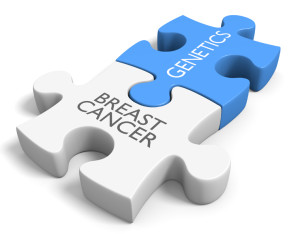Knowledge is Power. Now our job is to prove this to the world.
We so often want a crystal ball to gaze into our future. We have a number of crystal balls. These are crystal balls based on science and research, customized to our own unique DNA. I am referring to genetic testing, specifically BRCA testing.
With all of our many loves, accomplishments, dreams… they are all for not without our health – health is the very greatest wealth of all. There is a cliché out there – but it is most unfortunately oh so true. Youth is wasted on the young, which goes hand in hand with hind sight is 20/20. My plea here is that none of you fall into this abyss, and you opt for earlier genetic testing. My preference is late teens, early 20s. Have the option to make proactive decisions.
If you were cruising along on a mountain road just beckoning us to speed, would you slow down if you knew there were a cliff with a 500 foot drop around the next bend? Of course you would.
 My #1 goal of this article is to empower people to take charge of their health’s destiny – speak to health care professionals – every one of us can prosper from a good MD and ND. Open dialogue with a number of health care professionals, and determine if genetic testing is right for you.
My #1 goal of this article is to empower people to take charge of their health’s destiny – speak to health care professionals – every one of us can prosper from a good MD and ND. Open dialogue with a number of health care professionals, and determine if genetic testing is right for you.
We have the power for genetic screening for BRCA1 BRCA2 and PALB2. All three genetic mutations are associated with a higher risk of breast and ovarian cancer.
The BRCA gene test is a blood test to check for specific gene mutations that help control normal cell growth. Finding changes in these genes, called BRCA1 and BRCA2, can help determine the chance of developing breast and/or ovarian cancer.
The BRCA gene is a tumor suppressor gene. The BRCA gene mutation is also associated with male breast cancer, fallopian tube cancer, peritoneal cancer, prostate cancer, pancreatic cancer. BRCA1 & BRCA2 are responsible for producing a tumor suppressing protein. Tumor suppressor proteins help prevent cells from growing and dividing too rapidly or uncontrollably. When there is a mutation in these genes, they do not produce the protein, or it does not function properly, therefore threatening the stability of the cells by the cell not being able to repair damaged DNA. Our cells take hundreds of hits daily from oxidative stressors in our lives, our bodies must be equipped to repair, otherwise, serious illness results.
Let’s consider some data on BRCA and breast/ovarian cancer. (via cancer.gov)
- 12% of women in general population get breast Cancer
- 55-65% of BRCA1 carriers will develop breast cancer before 70 years of age
- 45% of BRCA carriers will develop breast cancer before age 70
- About 1.3% of general population will get ovarian cancer
- 39% of women with BRCA1 and 11-17% with BRCA2 will develop ovarian cancer before 70
- Mayo Clinic: BRCA gene mutations are responsible for about 5 percent of breast cancers and about 10 to 15 percent of ovarian cancers.
Most women with breast cancer and/or a family history of breast cancer do not have an abnormal gene, and not all women who have inherited one of these genes will develop cancer.
Genetic testing is a subset of genetic counseling. I am NOT a genetic counselor…but I do know the incredible power of proactively planning lifestyle choices over reactive planning. Genetic counseling is the process by which we can learn and understand relevant aspects of our own genetics, offering us assistance in clarifying options available for any decisions that might be necessary with the newly acquired genetic insight. The psychological component is emphasized equally to the physiological aspect – blood sampling. However, it is equally important to research where you would like to do your genetic counseling. Many doctors offer testing, however, please seek out in your community genetic centers, which can often offer more in-depth consultations by genetic counselors.
There are a number of choices available if the BRCA1 or BRCA2 tests are positive. And I feel very compelled to remind everyone here, testing negative does NOT give you a get out of jail for free card. A life to prevent cancer is the healthiest lifestyle of all.

If the genetic tests are BRCA positive a genetic counselor will help you plan and make decisions. Again, various options are available:
- Prophylactic mastectomy – removal of both breasts – has been found to reduce the risk of breast cancer in high-risk women by about 90%. However, people need to be alerted breast cancer testing changes after a mastectomy. To be discussed with your counselor.
- Prophylactic salpingo-oophorectomy, or removal of both ovaries and fallopian tubes, reduces breast cancer risk up to 50% if done before menopause, as it takes away the body’s main source of the hormone estrogen. It also can greatly reduce ovarian cancer risk.
- Hormonal therapies
- Discuss pros and cons of modified screening procedures
- Opt to modify lifestyle choices
- A combination. a woman who is tested in her early 20s might decide to modify lifestyle choices, and opt for prophylactic surgery later… this is what genetic counselors will discuss with you.
One of the many perks of having genetic testing at a younger age, is having the knowledge and power to make lifestyle decisions that can impact your life. These lifestyle choices will not only help prevent breast and ovarian cancer, but are guidance to prevent all of our chronic illnesses.
Please remember, screening does NOT replace a proactive lifestyle. Some of the well documented choices to prevent breast cancer include:
- Limiting alcohol. Even one drink a day increases risk of breast cancer, and it takes very little more to dramatically increase the risk.
- Don’t smoke, and this includes “vaping”.
- Control body fat levels.
- Exercise and physical activity. However, I feel compelled to mention that excessive, strenuous exercise can be a source of oxidative stress. This is where you need to consult with a qualified exercise professional a Cancer Exercise Specialist, specialized in cancer and medical fitness. Many exercise professionals are completely unaware of the potential for exercise induced oxidative stress. Our outer being does not necessarily reflect our cellular health.
- Breast feeding: Many women choose not to breast feed. Another potential reward of earlier testing is making the choice to breast feed. According to the Mayo clinic breast feeding can reduce the risk of breast cancer. The longer we breast feed, the greater the reduction.
- Far too overlooked – learn about potential oxidative stressors, mutagens, viruses, toxins in your life that could potentially lead to DNA damage.
Most unfortunately, in this world we must consider legal implications of genetic testing. One more aspect of genetic testing, I urge everybody to look into GINA (Genetic Information Nondiscrimination Act). GINA prevents your insurance company from denying coverage or changing premiums on the basis of your genetic testing results. It also protects from discrimination by employers on the basis of the test or its results. However, it is not as clear cut with other insurance policies, such as life insurance. I urge everybody, as part of planning to look at:
United States: Cancer Legal Resource Center’s national Telephone Assistance Line (866-THE-CLRC)
Canada: May 3, 2016 – Bill S-201: An Act to prohibit and prevent genetic discrimination was tabled in the House of Commons. A number of provinces already have legislation – best to check with your MPP office to see where the genetic discriminatory laws stand.
The “deer in headlights” refers to being caught off guard – eyes opened wide and forcefully, but no ability for motor response. A terrifying thought. There are many of us who can live longer, happier, healthier lives, more confident lives, by consulting with a genetic counselor. A counselor can help you weigh out the decision to have or not have testing, based on YOU. And for many reasons, our chances are increased dramatically the earlier we have this knowledge and can be encouraged to make wiser decisions. Knowledge is power.
Shira Litwack is the Director of International Relations and Master Trainer at, Cancer Exercise Training Institute and creator of Best in Health Radio.
